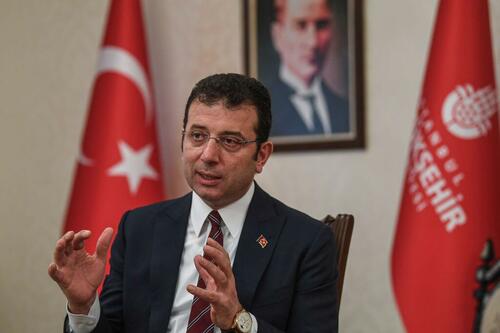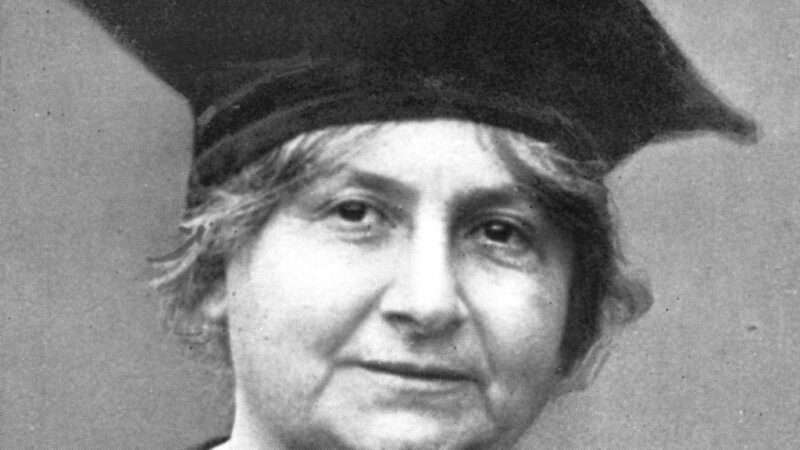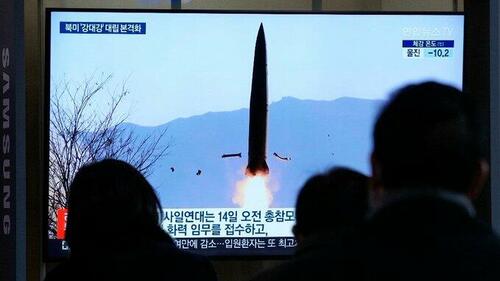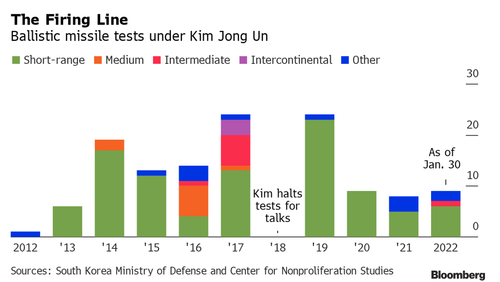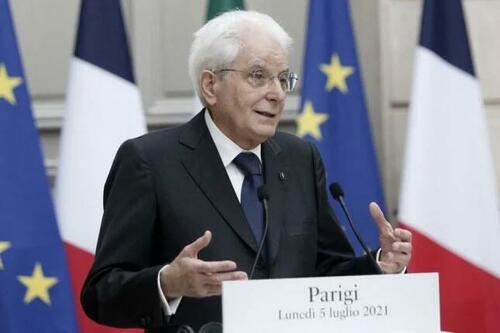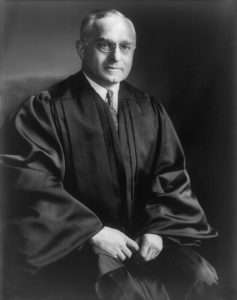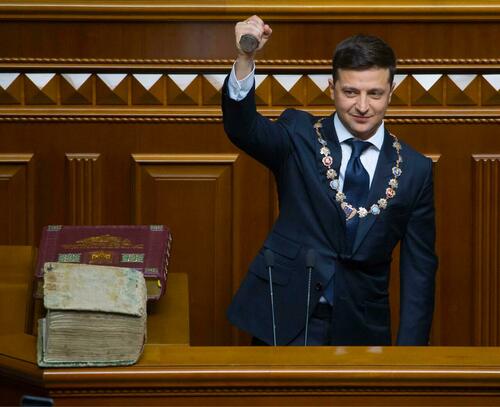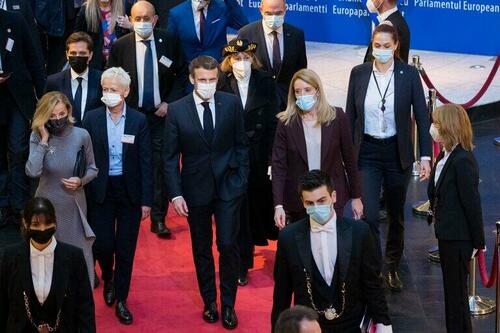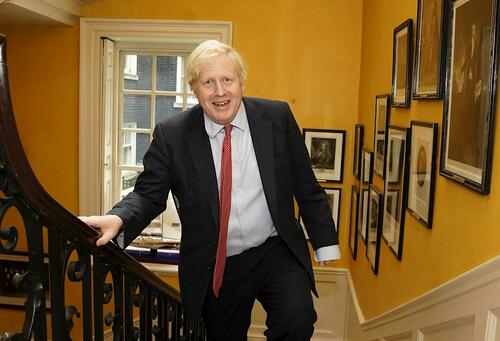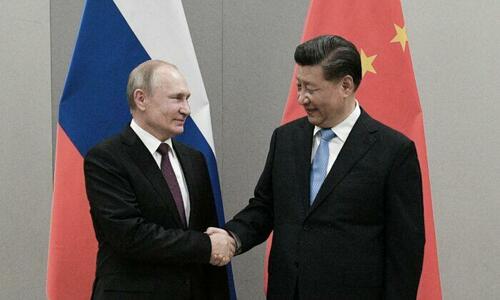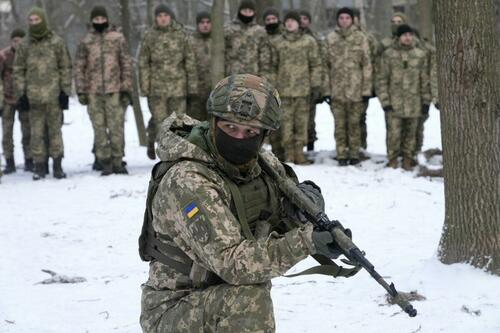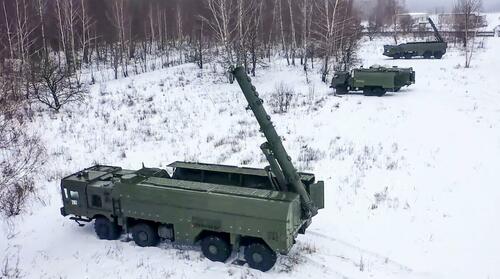Istanbul’s Mayor: Erdoğan’s Worst Nightmare
By Burak Bekdil of Gatestone Instutute; he is one of Turkey’s leading journalists, was recently fired from the country’s most noted newspaper after 29 years, for writing what is taking place in Turkey. He is a Fellow at the Middle East Forum.
Summary:
- “If we lose Istanbul, we lose Turkey.” — Turkish President Recep Tayyip Erdoğan.
- It appears that [Interior Minister Süleyman Soylu’s] “terrorists” are actually people who are being probed for links with illegal organizations but who have not been prosecuted — let alone being found guilty by courts.
- This kind of intimidation, further victimizing Istanbul Mayor Ekrem İmamoğlu in the eyes of the voters, will simply boost his popularity — and at a time when Erdoğan’s ratings are plummeting.
- Erdoğan, it seems, did not want opposition mayors to gain further popularity by helping the poor.
- It would be premature to conclude that there will be a historic shift in Turkish politics in 2023. All the same, the reports are real, and so are Erdoğan’s fears, panic and increasingly reckless governance.
Turkey’s secular state establishment was shocked when a young militant Islamist won the mayoral elections in Turkey’s biggest city, Istanbul, in 1994. “Who wins Istanbul wins Turkey,” Recep Tayyip Erdoğan, at that time Istanbul’s mayor, would often say. History would prove him right.
Erdoğan’s tenure as Istanbul’s mayor ended when in 1997 when he recited a pro-Islamist poem. “The mosques are our barracks, the domes our helmets, the minarets our bayonets, and the faithful our soldiers” earned him a 10-month prison term for “inciting religious hatred,” four of which he served. In 2002, Erdoğan’s Justice and Development Party (AKP) swept to victory in national elections.
Erdoğan has since remained unchallenged, first as Turkey’s prime minister and, since 2014, as president. Observers agree that Erdoğan’s skilfully-crafted image-making as the “victim of an authoritarian, secular regime” helped him to win one election after another. “People saw him as the guy from the other side of the tracks who the system had unjustly punished,” Soner Çağaptay, author of Erdoğan’s Empire, wrote.
Ironically, the man who has become Erdoğan’s worst nightmare is following a similar path. In March 2019, as the race for municipal elections was barrelling ahead, Islamist parties had controlled Istanbul — along with Turkey’s capital, Ankara — since 1994. Erdoğan’s candidate for Istanbul was a big shot: former Prime Minister Binali Yıldırım. The opposition, however — including social democrats, liberals, some nationalists and Kurds — united behind Ekrem İmamoğlu, then a little-known district mayor in Istanbul.
During the run-up to the election, Erdoğan’s party officials and trolls launched a smear campaign against İmamoğlu. One AKP deputy chair spoke of “many question marks” surrounding İmamoğlu’s ethno-religious identity, demanding İmamoğlu prove “that your spirit, heart and mind is with the Turkish nation.” A propaganda machinery started to allege that İmamoğlu was a crypto-Greek, and that his supporters were Greeks disguised as Muslims. He was also accused for having links to Kurdish terrorists.
The vote count, on March 31, 2019, proved to be a political fiasco for Erdoğan and his seemingly invincible AKP: İmamoğlu won by a narrow margin of 13,000 votes (in a city of 18 million people). The AKP-controlled Supreme Election Board ruled for an election rerun on June 23. This time, İmamoğlu won by a margin of 800,000 votes, shocking Erdoğan and his gigantic party establishment.
Just two years earlier, Erdoğan had said, “If we lose Istanbul, we lose Turkey.”
Since the restoration of Turkish democracy in 1983, which followed a military coup in 1980, no candidate in Istanbul’s mayoral elections had a managed to win with such a majority: İmamoğlu won 54% of the votes, compared to 45% for the AKP candidate — and compared to 25% for Erdoğan in the 1994 election.
The election result triggered a campaign of intimidation and hatred against İmamoğlu which, paradoxically, has boosted him as a perfect contender against Erdoğan for the next presidential elections in 2023.
During the early days of the Covid-19 pandemic, Erdoğan launched a national donation campaign, through which wealthier Turks, individuals or businesses, could help poorer Turks. In other words, the Ankara government would collect money from the people to help the people. Unsurprisingly, the campaign collected an embarrassing $245 million in a country of 83 million people — and most of that came from government-controlled companies.
Parallel to Erdoğan’s campaign, İmamoğlu and Ankara’s Mayor Mansur Yavaş launched local campaigns to collect donations to help the poorest in Turkey’s two biggest cities. But there was a problem. The government said city councils, according to law, must first obtain permission from the Interior Ministry to launch fundraising initiatives. İmamoğlu and Yavaş argued that other government-controlled municipalities were also raising donations to help workers and small business owners who had lost their incomes due to the coronavirus. Yes, the government said, but they had obtained permission whereas Istanbul and Ankara had not. Erdoğan, it seems, did not want opposition mayors to gain further popularity by helping the poor.
In 2020, Vakıfbank, a state-owned lender, froze the Istanbul municipality’s account after coronavirus donations had reached $130 million. The Interior Ministry launched criminal investigations against the two mayors on charges of illegal fundraising. “Pathetic,” was all İmamoğlu said. In further shows of ire, the central government in Ankara would also suspend Istanbul municipality’s campaign to sell the poorest Turks cheap bread.
In one bizarre episode last year, the Interior Ministry launched an investigation into İmamoğlu for “disrespecting Sultan Mehmet II’s tomb” — referring to the Ottoman sultan who conquered Istanbul in 1453. A probe was opened and the mayor of Istanbul was summoned to make a statement. What was the offense? It seems İmamoğlu, in a 2020 visit, had walked in the tomb of Sultan Mehmet II with his hands folded behind his own back! Evidence? A photo showing İmamoğlu in front of the tomb with his hands folded behind himself. “In my opinion,” Interior Minister Süleyman Soylu said, “This [behavior] is an offense.”
“I feel so much shame,” İmamoğlu replied, “on the minister’s behalf.”
Nevertheless, the Interior Minister is once again on the run to sideline İmamoğlu. On December 27, the ministry launched an investigation into hundreds of staff at the Istanbul municipality, accused of links to terrorist groups.
The probe covers 455 people working at the municipality and municipality-owned companies with alleged connections to Kurdish militants, along with more than 100 allegedly linked to banned leftist and other illegal groups.
The municipality protests that none of its employees has a criminal record, based on data provided by the Justice Ministry. Yes, the Interior Ministry admits, that is true. But, it maintains, the “terrorists” are individuals who are being investigated. Turkey has become more ridiculous than a caricature: the Interior Minister does not know that every suspect is innocent until proven guilty? It appears that the minister’s “terrorists” are actually people who are being probed for links with illegal organizations but who have not been prosecuted — let alone being found guilty by courts.
This kind of intimidation, further victimizing İmamoğlu in the eyes of the voters, will simply boost his popularity — and a time when Erdoğan’s ratings are plummeting.
Surveys by Metropoll Research show Erdoğan’s approval rating, at 38.6%, is its lowest since 2015. His popularity, they show, trails that of three potential presidential election rivals. A poll by Sosyo Politik Field Research Center put support for Erdoğan’s AKP at 27%, against 37% who said they voted for the party in the last parliamentary election in 2018. The AKP’s nationalist ally in parliament, the MHP, was at 6.3%, down from 7.3% who said they voted for the party in 2018.
Metropoll’s most recent research found that the mayors of İstanbul and Ankara have a comfortable lead over Erdoğan for the presidential election. If two candidates were to go head to head in the election, the survey showed, İmamoğlu would beat Erdoğan by 48.7% to 36.6%.
It would be premature to conclude that there will be a historic shift in Turkish politics in 2023. All the same, the reports are real, and so are Erdoğan’s fears, panic and increasingly reckless governance.
Tyler Durden
Sun, 01/30/2022 – 08:20
via ZeroHedge News https://ift.tt/o0IZGtsAE Tyler Durden
